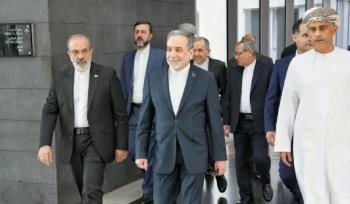Alwaght - Lebanon has been president-less for more than one year. For a country as small as Lebanon, it is never free of political turbulences as it is divided into a March 8 and March 14 coalition and the US and Saudi embassies are constantly trying to implement a not-so-hidden agenda.
The Lebanese parliament failed to elect a successor to former President Michel Suleiman before a constitutional presidential elections period ended on May 25th, 2014 creating a power vacuum in the country of four million.
Just on Wednesday, yet another session to elect the thirteenth president of Lebanon was deferred by Parliament Speaker Nabih Berri after the cabinet failed to complete a constitutionally required quorum.
The main reason behind this faltering is foreign intervention, that of Saudi Arabia in particular. Analysts have blamed Riyadh's policy of disruption and waiting as the chief cause that obstructed the election of a president during a constitutional period.
Its allies, or puppets for that matter, the most prominent of which are the Future Movement and the Lebanese Forces, have implemented this policy step by step from nominating former president and civil war murderer Samir Geagea to objecting the nomination of General Michel Aoun, head of the Free Patriotic movement and a Hezbollah ally, which is yet to be official.
This kind of rivalry is also representative of deep divisions among Christians which is also one of the obstacles imposed on the process of electing the man for the country's top job, as little prerogatives as it may hold. In accordance with a power-sharing pact signed in 1990, the president of Lebanon must be a Christian Maronite.
Meanwhile, the Centrist Democratic Gathering parliamentary bloc led by MP Walid Jumblat put forward the name of MP Henri Helou for the post. Since none of the political groups has the majority to vote for its candidate, it is up to one of the parties to sway and allow the 14 -month-long vacuum to be filled. It's only a matter of time and political maneuvers.
The presidential interregnum and Cabinet paralysis have brought about "dire consequences" and exacerbated the country's socio-economic situation.
For his part, Prime Minister Tammam Salam claimed "the continued vacancy in the presidency seat does not only weaken the political system, but i also threatens the national entity itself and causes heavy damage to Lebanon's formula of coexistence and partnership."
Sayyid Hasan Nasrallah, secretary-general of the Lebanese resistance group, Hezbollah, has repeatedly said: "The continuation of the presidential vacuum is in no one's interest."
Now the longer the presidential seat remains empty, the longer will foreign intervention plant itself in the void with the country's sovereignty at stake.


























